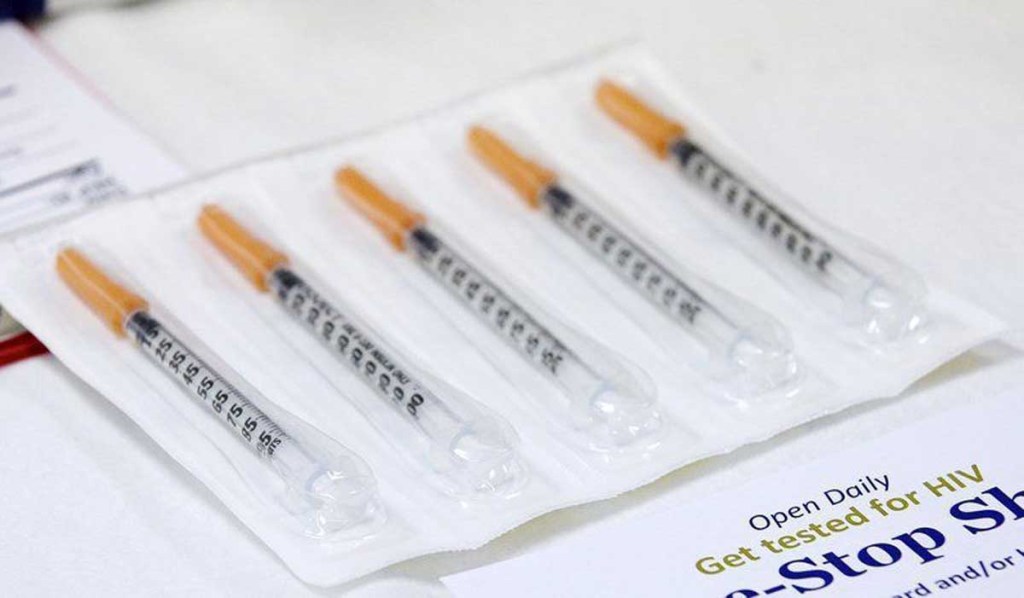Indiana counties grappling with Hepatitis C outbreak
Published 2:15 pm Tuesday, June 16, 2015

- New needles which clients can get as part of the needle exchange program at the Austin Community Outreach Center are displayed in Austin, Ind.
ANDERSON, Ind. — Less than two months after the Indiana Legislature passed a measure allowing communities proven to be in an epidemic to implement needle-exchange programs, nearly a dozen such programs are under consideration.
Madison County in east central Indiana could be the latest after the county commissioners, acting on a request from the Madison County Health Department, declared a public health emergency Tuesday because of an epidemic of hepatitis C.
The county’s health department reports that the number of new hepatitis C cases — 130 in 2014 — was nearly double that of the previous year.
Hepatitis C is an infectious disease primarily affecting the liver and caused by the hepatitis C virus (HCV). It is most commonly spread through contact with contaminated blood, which can often be found on shared needles among drug users.
“So far this year we’re looking at new cases of 130 or higher,” said Kellie Kelley, public information officer for the Madison County Health Department.
Under the bill passed by the Legislature, the state’s department of health would have to approve a needle exchange program, a process that could take several months. Currently, only one exchange — in Scott County — has been approved by the Indiana State Department of Health, according to spokeswoman Amanda Turney, but requests for several others may be forthcoming.
With Madison County’s infection rate at 98.8 per 100,000 people — considerably higher than the national average — Kelley told the Anderson (Ind.) Herald Bulletin there’s a heightened sense of urgency to instituting an exchange.
“We can’t have barriers,” she said. “Those exchanging needles will remain anonymous. There will be services available on site to get people into treatment programs.
“We’re hoping to stop the spread of hepatitis C,” she added.
The U.S. Centers for Disease Control and Prevention have urged county health departments in areas known for high levels of intravenous drug use to act quickly to prevent the spread of HIV. Hepatitis C rates indicate needle-sharing, they warned, and can portend an HIV outbreak.
That has proven to be the case in Scott County in southern Indiana, where health officials have seen an increase in both hepatitis C and HIV cases. In fact, nearly 90 percent of the 163 people identified as HIV-positive were also found to have hepatitis C.
“If you don’t understand it, it can seem like you’re just helping people shoot up,” said Randy White, CEO of the Fayette County Regional Hospital, which serves several affected communities. “But we need to look at it from a larger public health view and realize the high cost of doing nothing.”
The Anderson (Ind.) Herald Bulletin contributed to this story.




